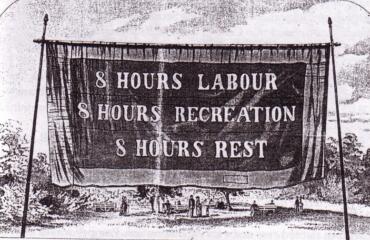Steven Piacun, 22, runs a free-range chicken egg farm and partners with his parents, both 64, growing vegetables and beekeeping in Albany, on the southern tip of Western Australia. confronting the coronavirus crisis head-on, he glimpsed an opportunity.
In the months since he has pivoted to direct selling and, so far, it’s working.
In late March, Piacun invited customers on the farm’s social media accounts to text orders and collect their fresh produce directly from the farm gate. With Facebook groups popping up across Australia pushing the mantra to “buy local”, the pandemic validated the family’s fast adaptation. The number of customers visiting the farm grew week by week.
“No one knew what would happen, but we basically just said let’s keep the farm going strong,” Piacun says. “People still need to eat.

“Even though people were apart, I think the pandemic made people more connected,” says Steven Piacun. He’s hoping that the shift many consumers have made to buying local will continue.
“We dusted off the Eftpos machine and we are now doing pre order pickups at the farm. It pushed us to think about things perhaps 10 years earlier than we might have.”
Forty percent of the farm’s sales – about $1000 a week – disappeared when restaurants were forced to close in March. While they are now re-opening Piacun’s part of the country, and locals are returning to places like the Albany Farmers Market where he sells his products, he’s anticipating that the trend to direct selling will continue.
He is now researching an online store that would streamline direct to consumer sales.
“Before the pandemic I had done a little bit of research into setting up a website, but it was tricky to gauge how it would be received. Everyone being told to stay at home pushed us into taking the baby step of marketing more pick up orders from the farm,” he says.
“Now seeing there is a demand there we are keen to make it a mainstay of our business.”
Piacun always wanted to be a farmer. Growing up on his parents’ farm, he loved watching crops grow, spending his days in nature, and chatting with customers. The pandemic reaffirmed for Piacun how essential food producers are.
By it’s nature, farmers are constantly adapting to changing conditions, and the pandemic is not the first incident to compel the Piacun family to change course. Until Piacun was 10, his parents, Steven and Ann, ran a merino farm. They phased out production after their income collapsed following the removal of the floor price for wool in 1991, which saw the wool industry shrink by two thirds over the following 20 years. His father shifted to beekeeping, selling directly to consumers.
“That is why places like farmer’s markets and direct to consumer is really empowering because farmers get the full dollar.”
The agriculture industry is predicted to weather the long-term effects of the crisis, with Peter Gooday, the acting executive director of the Agricultural Bureau of Resource Economics and Sciences, saying the sector remains strong. But farmers’ supply chains and logistics are expected to be disrupted in waves as the virus spreads around the world.
The most exposed farms were those like Piacun’s which supply directly to restaurants. But with consumers avoiding supermarkets, other farmers took a similar approach to Piacun, successfully selling direct from their farms.

In the race to make their business viable in the face of mass restaurant closures, there wasn’t much time for Piacun to join the pandemic-induced “I finally have time to do all of my hobbies’” fad. He was too busy, his working week pushed out to six days to include an extra half day on Sunday.
Starting at 7am and finishing at 6pm, his days rotated between collecting, washing and packaging eggs; planting, harvesting, and packing vegetables; delivering to wholesalers; and marketing on social media.
“Money-wise, we were making about the same but it felt like we were working twice as hard as we wrapped our heads around all these changes,” Piacun says.
“Now that the restrictions have been lifted we do feel like we’ve weathered the storm and can relax a bit.”
Piacun hopes the experience of the pandemic has encouraged people to connect more with where their food comes from. This will help him continue to weather the recession.
“Even though people were apart, I think the pandemic made people more connected,” he says. “Because we have direct contact, we have a direct connection with our customers. They know we are trying to do the right thing and we are local people, just like them.”
“The real power is in the people and if they support farms and organisation to do the right thing then we will see that change. I think it starts at the ground level with everyday people.”
It’s “full steam ahead” for Piacun and his business for the next few years, with the hope to one day travel to learn from other farmers.
“I think our generation is actually stronger than what people think. We are quite innovative, so I think we are going to work with whatever is thrown at us”.
This project is a result of a partnership between the Guardian Civic Journalism Trust and the Centre for Advancing Journalism at the University of Melbourne. Reporting contributed by: Alyssa Herr, Anthony Marsico, Ashleigh Barraclough, Connor Webster, Else Kennedy, Fia Walsh, Jordyn Beazley, Liam Petterson, Petra Stock, Sean Goodwin, Thomas Phillips and Wing Kuang. Visit the full interactive package co-published with Guardian Australia here.




